- 45 units available
- 1 bed • 2 bed • 3 bed
- Amenities
In unit laundry, Hardwood floors, Dishwasher, 24hr maintenance, Stainless steel, Walk in closets + more

Noise disruptions are a common challenge in apartments, but knowing your options makes all the difference. Here’s how to handle noise problems effectively, from practical solutions to enforcing your rights.
A noise complaint is a formal notice lodged against an individual or an operation. The complaint describes the disturbance or interruption of someone's quiet enjoyment of their living space. This could include:
Everyday sounds such as traffic, children playing, or casual conversations usually don’t qualify.
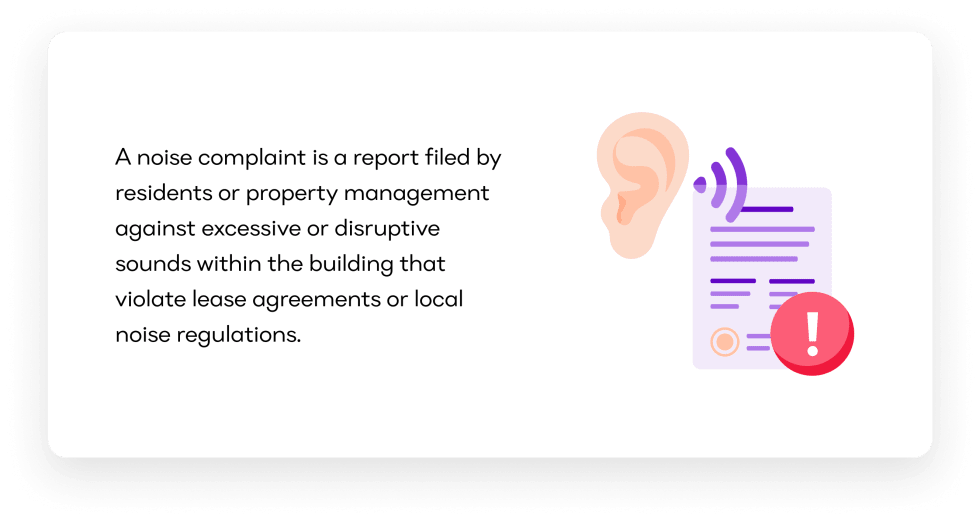
As a renter, you have a legal right to the “covenant of quiet enjoyment.” That means you're entitled to live in your apartment without excessive noise disturbances that interfere with your ability to sleep, relax, work, or go about daily life.
This protection is often built into your lease and backed by local landlord-tenant laws. It doesn’t mean your apartment has to be completely silent, but it does mean you shouldn’t have to deal with regular disruptions.
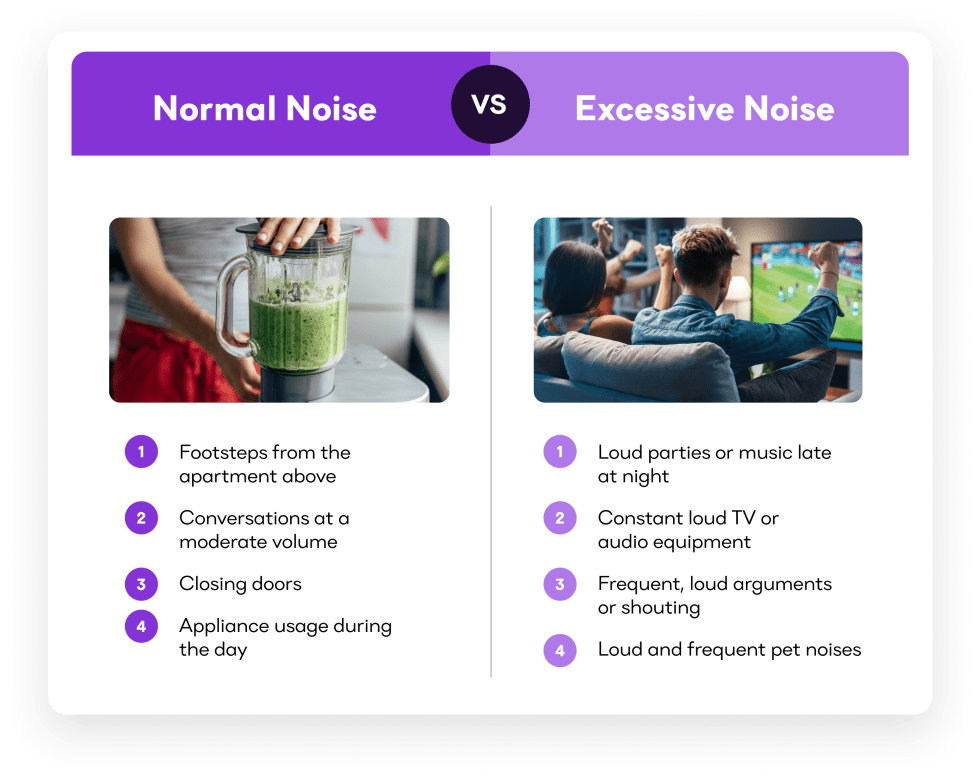
A respectful conversation or written note can go a long way in resolving many noise issues. When approaching your neighbor:
If a face-to-face conversation is too difficult, consider sending a kind note, messaging via your tenant portal, or having your landlord act as a mediator.
Most communities have written laws about excessive noise, which gives you the right to file a complaint. Here’s how to take action.
By taking consistent, well-documented steps, you’ll increase your chances of resolving the issue through formal channels.
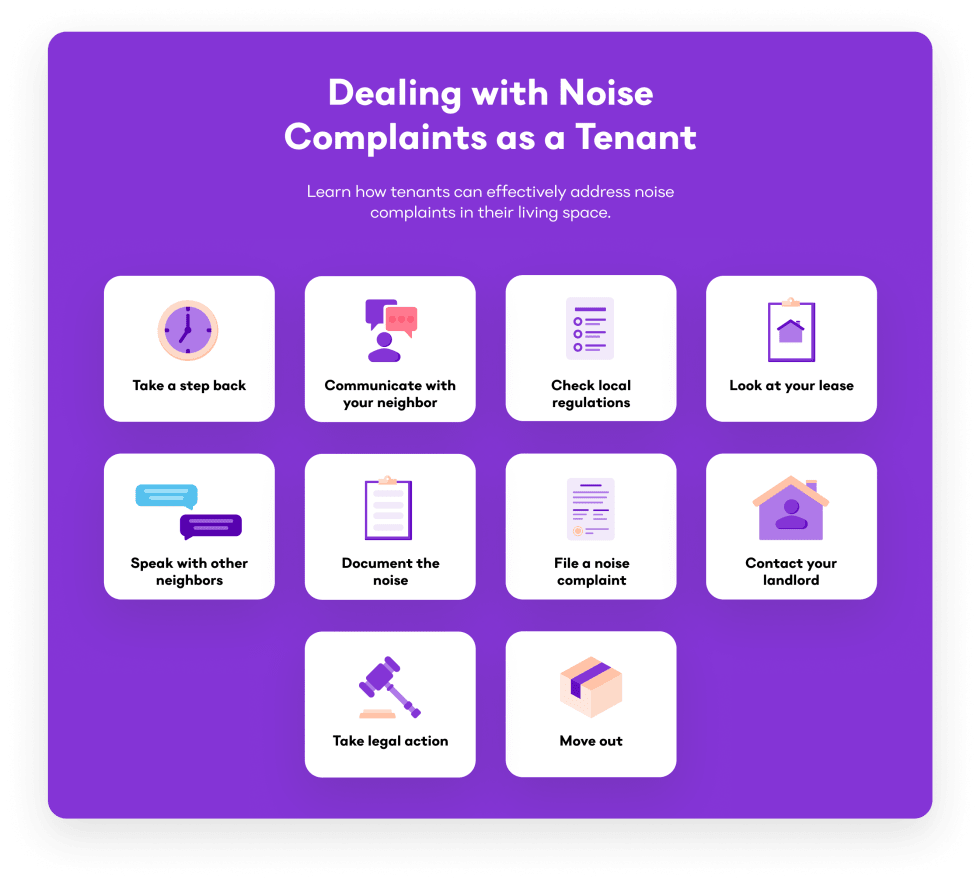
If noise makes your unit uninhabitable and the landlord fails to fix the situation, you might qualify for constructive eviction intentionally breaking your lease.
Before moving forward, talk to a tenant rights attorney and make sure you’ve documented all complaints and communications.
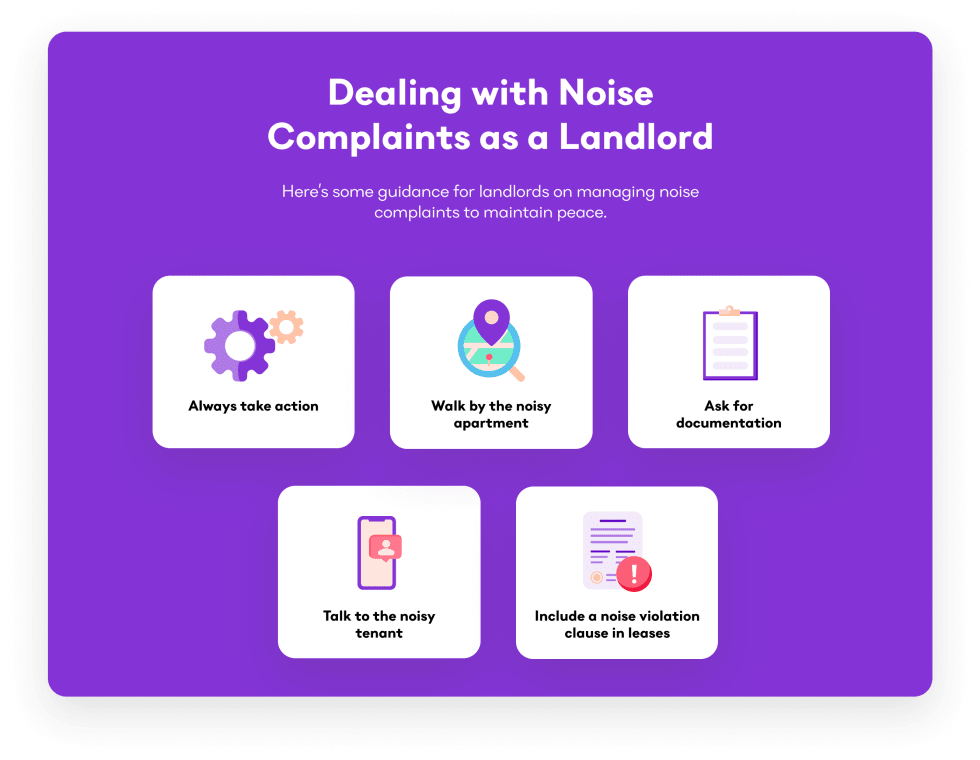
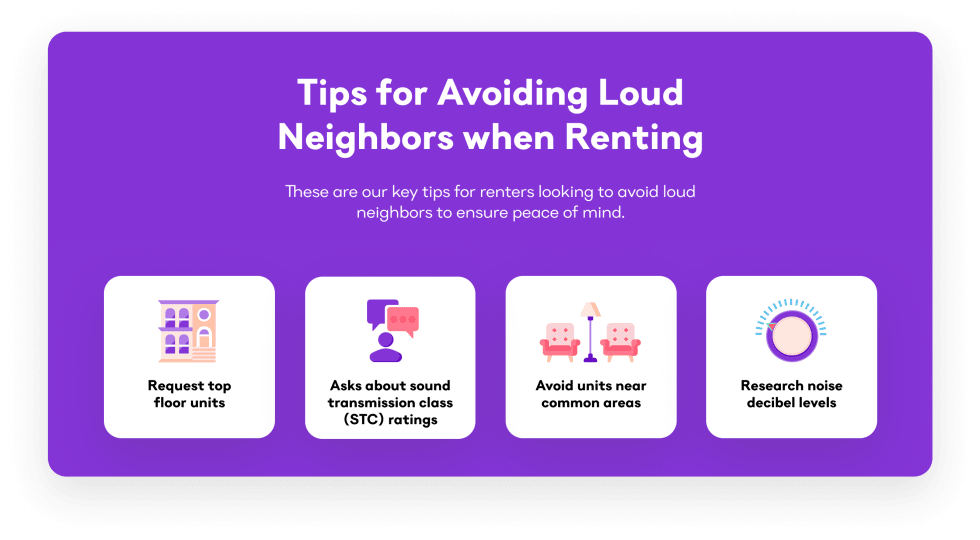
Knowing how to deal with a noise complaint is the first step to finding peace in your home. But if it gets to the point where neither you nor your landlord can resolve it, it’s okay to start looking elsewhere.
Take our personalized quiz to find the ideal apartment for your needs and preferences.
Here are some practical ways to deal with a noise complaint:
If you file a noise complaint with your landlord, they should start investigating and talk to your neighbor. But if you file a complaint with your city, the police should contact the neighbor about their noise and give them a warning or issue a ticket and fine.
Noise complaints differ depending on your area and local laws or lease terms, but common issues include:
Talking to your neighbors could resolve the noise complaint before it spirals. Here are some tips to get started:
It's unsettling and annoying to hear footsteps in your apartment. When sound leaks through walls or floorboards, it's magnified in the empty space between your apartment and your neighbor's. This is normal in apartment living, and is usually considered to be an acceptable form of noise.
Acceptable sound levels, including music, depend on your local area and lease terms. It's usually standard that people shouldn't play loud music of 50 decibels or higher between 11 pm and 7 am. Check your lease terms and local laws, or invite your neighbors to let you know if you're being too loud.
It's always awkward asking neighbors to walk softer, but you should be direct, honest, and as polite as possible. Ask if they would be willing to wear socks or invest in an area rug to help fix the problem.
Check your lease or local noise regulations (usually between 50 dB at night, or specified quiet hours). Common issues include constant use of power tools, loud arguments or music, and late night parties.
Only in extreme cases where the disturbance makes the unit uninhabitable—this may fall under "constructive eviction." It’s recommended to seek legal advice about this.
Yes. If landlord intervention fails, you may consider filing with housing authorities, mediation services, or small claims court.
Yes, witness accounts can help your case and impact landlord action.



In unit laundry, Hardwood floors, Dishwasher, 24hr maintenance, Stainless steel, Walk in closets + more
In unit laundry, Granite counters, Pet friendly, Stainless steel, Walk in closets, Gym + more